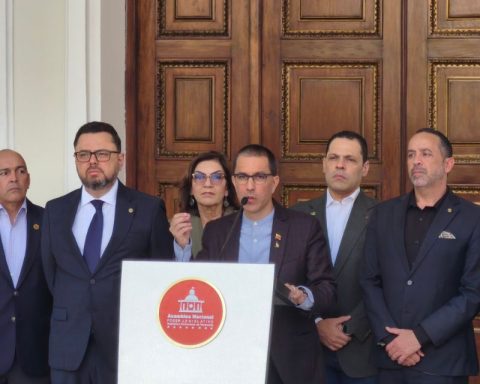Close to two thirds of the citizens support an early general election and almost half of the country that there is a constituent assembly, to make another magna carta, according to the latest survey of national representation by the Institute of Peruvian Studies (IEPs), research for La República.
The study consulted the population from May 23 to 26 and has margins of error of 2.8 points above and below each national level result.
Approximately 67% of Peruvians believe that the most convenient for the country, among different options, would be for there to be general elections and another president of the Republic and new congressmen are chosen. Close to two-thirds of Peru have the idea that “everyone should go”.
YOU CAN SEE: Congressmen fear going for the censorship of Aníbal Torres, despite questioning his management
The other alternatives considered were that Castle be president until 2026, that there be presidential elections and follow the current Congress, and that Vice President Dina Boluarte assumes the Government. All have little support from the population.
The “let them all go” position increases. In February, with the same alternatives, 48% preferred the advance of general elections, that is, about half of the nation. A month ago, 61% already tended to this option.
Barely 3% of citizens support holding presidential elections and keeping the current congressmen.
An also minuscule 2% of nationals consider it more convenient for Castillo to leave and Boluarte to assume the presidency.
YOU CAN SEE: Bancada de Perú Libre moves away from the ruling party: does it favor or harm Pedro Castillo’s management?
Infographic – The Republic
Infographic – The Republic
The assembly
Castillo’s proposal for a constituent assembly, which proposes a new Constitution, the highest national law, divides Peru almost into two halves: 49% disagree and 47% agree.
Support is more widespread in the south, center and east of Peru, and among the poorest (socioeconomic levels D and E).
The rejection of this approach is more common among the better-off (levels A and B) and in metropolitan Lima.
When considering different options on the Constitution to define what is best for the country, 49% of citizens prefer that some changes be made to it, 31% that there be a new Magna Carta and 17% believe that nothing should be modified.
YOU CAN SEE: Prosecutor asked Pedro Castillo if he led a criminal organization
Infographic – The Republic
Infographic – The Republic
Infographic – The Republic
Castle management
Castle does not recover. 70% of the country disapproves of the way his government is leading and only 21% approves of it.
Among those surveyed, it falls mainly in the north and south.
In addition, the negative identification of its management grows. 32% believe that the Castillo government will end up being more corrupt than the previous ones. In December of last year and last March, only 21% thought that. 40% believe that he will end up just as corrupt as his predecessors. Only 20% foresee it with less corruption.
YOU CAN SEE: Public Ministry initiates investigation against the first lady Lilia Paredes
Infographic – The Republic
Infographic – The Republic
The constituent’s dilemma
Analysis by Patricia Zárate, head of Opinion Studies at the IEP
A few weeks ago, the president presented a proposal to Congress to convene a Constituent Assembly to draft a new Constitution. The proposal was rejected, however, public opinion is divided between those who agree (47%) or disagree (49%).
Although half of those surveyed say that some changes should be made and not a new Constitution, 31% do want to have a new Constitution (although they have not necessarily read it). A constituent assembly becomes an issue that seduces several sectors, mainly the left, because it is seen as a way to solve problems that would actually be resolved with good management, which has been absent in several governments, mainly in the current one. .
YOU CAN SEE: Bancada de Perú Libre moves away from the ruling party: does it favor or harm Pedro Castillo’s management?
Despite the president’s announcements, his decentralized councils of ministers, he has not been able to stop his disapproval, which now reaches 70%; on the other hand, the percentage of those who believe that there should be general elections for president and congressmen is increasing. And, perhaps most importantly, in previous months only 21% believed that this government would end up being more corrupt than previous governments, that percentage reaches 32% in May.
The legitimacy crisis continues and is on the rise, but no organized reaction is seen, much less a majority of the citizenry. Probably because the fence left by several previous governments was so low that a mediocre government with signs of corruption is not so scandalous for some sectors.


















